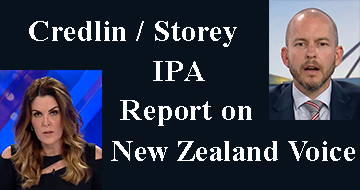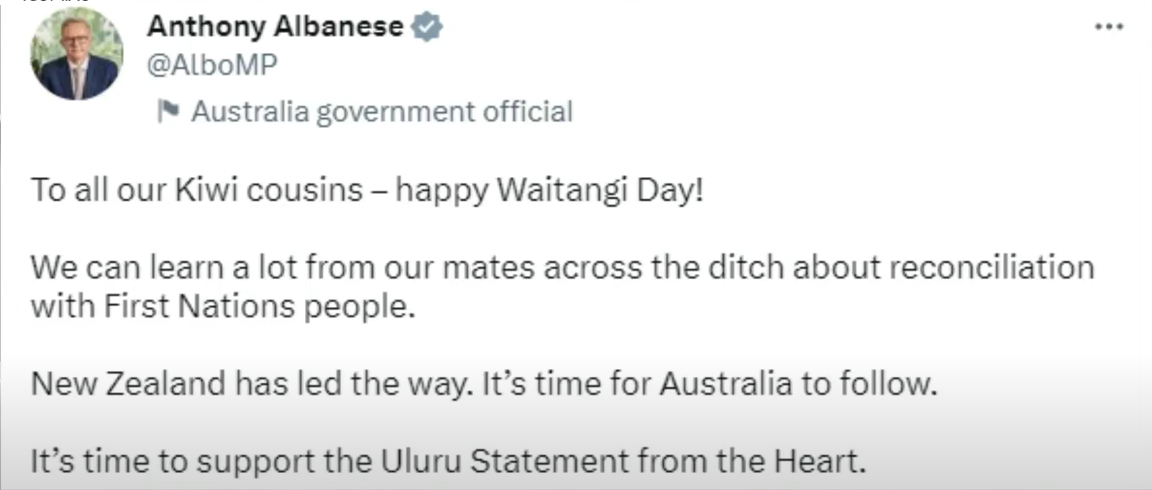



This is a transcript of a segment on Sky News hosted by Peta Credlin with John Storey, research fellow at the Institute of Public Affairs, February 2023. (YouTube)
Sky News: Credlin
Alarming developments from Waitangi Tribunal a warning for the Voice
Peta Credlin: Anthony Albanese wants a voice here in Australia. Well in New Zealand, the Waitangi Tribunal is one of his models: 'We can learn a lot from our mates across the ditch about reconciliation with First Nations people'
Have a look at this tweet:

Anthony Albanese [says]: 'We can learn a lot from our mates across the ditch about reconciliation with First Nations people. New Zealand has led the way. It's time for Australia to follow. It's time to support the Uluru Statement from the Heart.'
So what does the Waitangi Tribunal teach us about what's proposed here in Australia?
Joining us now is research fellow from the Institute of Public Affairs, John Storey, who's published a new report. Take us through what you've found John.
John Storey: Thanks for having me Peta. Yes, we were inspired by Anthony Albanese to have a look at the New Zealand experience, and we came across alarming developments.
New Zealand has become deeply divided by race. And race has become prominent in all aspects of policy making.
And it all really started in 1975 with the creation of a body to investigate Maori grievances. This was the Waitangi Tribunal, and it was intended to provide advice to the government and recommendations on how to deal with Maori grievances.
This may sound familiar to you. It was started off as a purely advisory body. In 1987 there was a major case in New Zealand, which found that the treaty of Waitangi was binding on the government and it laid down a number of principles: one of which was, that if the Waitangi Tribunal found that there was a legitimate grievance by a Maori group, that the government must act to redress it.
And ever since then there has been a series of more and more assertive and aggressive, race-based policies pushed by the Maori voice to parliament, the Waitangi Tribunal, and a series of cases that have deeply divided the country by race.
Peta Credlin: ... time John. Where can people find your report to read it in full?
John Storey: It's available on the Institute of Public Affairs website, ipa.org.au.
Peta Credlin: Well thank you John. We will keep on that. I know you're doing more work in this area. Thank you for your time. John Storey there from the IPA.
* End of news segment *
Download full report as pdf here (link)
Summary of Reports Findings.
General
Specific
* * * * * * *